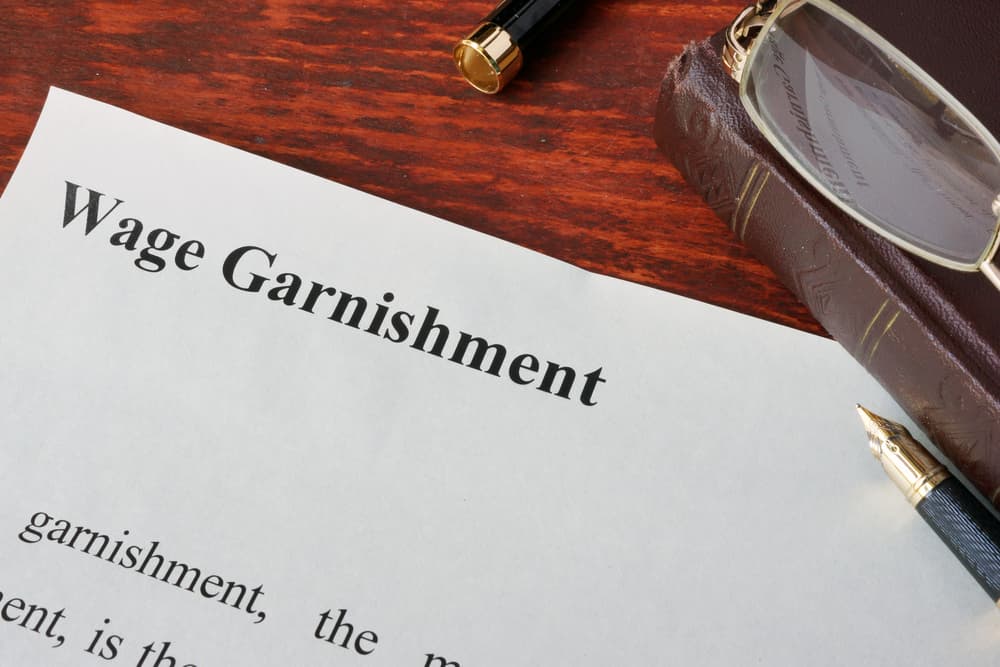If a court enters a judgment against you in favor of a creditor, many things can occur. Read on to learn more about judgments and what might happen. If you are in this situation, discuss the matter with a debt collection lawyer immediately.
How Creditors Obtain Judgments
Debt collectors want to take you to court to get a judgment against you. This way, they can use measures to take the money you owe with the court's permission. Then, the court system gives them cover for many methods they will use to collect and take your money.
Many creditors think that obtaining a judgment gives them a blank check to do whatever they want to you. The law does not allow that, and there are some limits on what a creditor can do to get your money. However, debt collectors may still use what they present as the court's authority to break the law.
You can fight back and hit the debt collectors where it hurts them the most. Just like they are trying to take your money, you can file a lawsuit against them and come for their money when they break the law. Both federal and state laws give you the right to push back when debt collectors take things too far, and you can file a lawsuit under the Fair Debt Collection Practices Act. First, you must hire an experienced lawyer with a track record of fighting against debt collectors for aggrieved clients like you.
Debt Collectors Will Try to Collect Without Going to Court

If you owe money to debt collectors, they will first pressure you to pay them and will use a variety of tactics, such as repeated calls and harassment, to scare and annoy you. There is a reason why they may try to use any method at their disposal to persuade or intimidate you into paying them. When debt collectors get your money, they will book part of it as their profits and attempt to purchase additional debt they can collect. Repayment means more profit for them.
Debt Collectors Can File a Lawsuit Against You
Debt collectors have rights if you do not pay when they ask, and since they own the debt, they can sue you for repayment. They will not necessarily get the money right off the bat when they sue you in court. Debt collectors are after a judgment that gives them the right to collect from you in the future. Suing you is the first step to a long process where they will play an outsized role in your life.
As many as 90 percent of people sued in court for debt collection do not even respond. When that happens, debt collectors obtain a default judgment, where they have the right to collect from you in the future using specific means
To avoid default judgments, it is important to respond promptly and appropriately to any lawsuit notice. Ignoring the notice or failing to appear in court can result in a default judgment being entered against you. It is recommended to seek legal advice from an attorney experienced in debt collection cases to guide you through the process and protect your rights.
Default judgments in debt collection lawsuits can have severe consequences for the defendant. It can be tempting to want to hide from a lawsuit, especially when you do not know how to handle it or do not have the means to pay the debt. But always take any lawsuit notice seriously and respond in a timely manner. Consulting with a knowledgeable debt collection attorney can help you face your debt collection case and defend against the claim.
Debt collectors may still obtain a judgment even if you file an answer to the lawsuit and try to fight back. If they can prove that the debt is real and you owe the money, the court will grant them a judgment. However, debt collectors are not always correct and often cut corners. They are counting on you waiving your due process by not showing up to contest their side of the story.
Having a skilled debt collection lawyer is the best way to avoid unnecessary judgments against you from debt collectors. However, if you already have a judgment, what happens next?
Debt Collectors Can Take Certain Measures Once They Get a Judgment
Once the debt collectors obtain a judgment against you, they become judgment creditors and must register the judgment in the state where it will be valid. Doing this allows them to begin to make collection efforts. They now have the legal authority to take from you once they have made an effort to seize certain assets or to set up processes that allow them to collect automatically.
How Debt Collectors Collect From Judgments
Chances are that the debt collectors will be unable to collect the entire amount of the judgment at once and will have to collect gradually over time using specific methods. The judgment will be valid for a certain period, measured in years. So long as the judgment is valid, they may try to collect from you.
Debt collectors can be ruthless. Once they have a judgment, they may stop at nothing to get their money and use aggressive collection and enforcement efforts. These companies wrote the book on pursuing individual debtors with harsh methods.
Here are some ways that debt collectors may try to get your money once they have a judgment against you.
Garnishment of Your Income

Debt collectors will try to garnish your income to repay the debt gradually. They will first have to obtain an order to garnish income. Then, there are limits on how much they can take with each paycheck. However, debt collectors can get a piece of your paycheck directly from your employer. Garnishment is hardly ideal for you, especially when you live paycheck to paycheck. The creditor can garnish your income until you pay the debt or if the judgment is valid.
Specific sources of income may be exempt from garnishment. For example, most judgment creditors cannot garnish a social security check or child support. Check with an attorney if you have a question about a particular source of income.
Seizing Your Bank Accounts
Creditors may also try to seize your bank account. To be clear, judgment creditors have the right to take many forms of your property and, most often, direct their efforts to your bank account. Once they locate your bank account, they may seek permission from the court to seize it and will run searches to find your assets so they can take them to satisfy the judgment.
Your Home Has Protection from the Debt Collector's Judgment
You can take comfort in knowing that your home will be safe from the debt collector's efforts. They cannot take your home away from you, and the only way that you will lose your home is if you fall behind on your mortgage payments or if the homestead exemption in Chapter 7 bankruptcy does not apply to you.
Filing Bankruptcy After a Judgment Against You

Some people may assess their financial situation and realize there will be a significant impact for an extended period. Simply stated, they may realize there is little way out of their financial dilemma. There is one ray of hope that can help a debtor get a new financial start or some breathing room to pay their debts.
Consider exploring the bankruptcy process to either get a fresh start financially or get some help in managing and repaying your debts.
Two types of bankruptcy are available for households:
- Chapter 7 bankruptcy is a liquidation. The bankruptcy trustee can take and sell your assets to pay your creditors. Once you emerge from bankruptcy, you can have many of your debts discharged. Successfully filing for Chapter 7 bankruptcy may free you from the judgment against you. The tradeoff is that you can lose any personal property that is not subject to one of a listed set of protections. Further, not everyone can qualify for Chapter 7 bankruptcy. You need a specific income to qualify for Chapter 7 under the means test.
- Chapter 13 bankruptcy is a restructuring. You will get time and flexibility to pay back your debts, and there will be a repayment plan over time. You may still be entitled to debt discharge after the Chapter 13 process if you have made all the payments. Further, a broader range of debts are eligible for Chapter 13 discharge than there is under Chapter 7. There is no income threshold to qualify for a Chapter 13 bankruptcy.
An experienced attorney can help determine whether bankruptcy is the right option for you. A lawyer can then advise you which type of bankruptcy is better for you to file, and they can represent you throughout the process.
Negotiating a Settlement with the Creditor
Creditors who hold the judgment want you to avoid filing for bankruptcy, especially if it is Chapter 7. If you end up in bankruptcy, they may get little to nothing in payment for the judgment. Thus, the creditor may have an incentive to negotiate with you and reach a settlement. It costs debt collectors money to collect, and they may realize that taking some money from you now is "low-hanging fruit" that can help them pad their profits. They may take a settlement that pays them less than the amount of the judgment because it is easier and less expensive. Creditors can get a certain amount of money now, which is far better than getting nothing.
You can negotiate a settlement that results in you paying less than the amount of the judgment. The creditor may still be happy because they get some money, and you can pay less than the amount of the judgment and avoid bankruptcy.
You Can and Should Fight Back Against a Debt Collection Lawsuit
One of the best ways to deal with a judgment against you is by being proactive and fighting back before it begins. Some debt collectors try to sue you to collect on bogus debts that you never even owed in the first place. Most people who receive notice that they owe money will ignore it, but the problem is that you will lose your right to due process if you do not respond. You can have a default judgment for a debt that you never even owed, which can be a highly difficult situation to get out of.
If you receive notice of a lawsuit and the debt does not look like yours, you must contact a debt collection lawyer immediately. This is because once debt collectors get a judgment, they can enforce and collect on it. You must speak up immediately when they file a lawsuit against you for debt collection, and your attorney can work to prove the debt is not yours or is invalid.
Even if debt collectors obtain a judgment, you may still be entitled to some relief if they take things too far. You can file a lawsuit against them under state or federal law and get economic and non-economic damages from their illegal actions. However, the first step is to fight back to stop the illicit collection measures from happening. If judgment creditors are trying to take too much from you or do something they cannot do under the law, you can work to end it.
You Need a Debt Collection Attorney But Do Not Have Pay Out of Pocket
Never assume that there is no hope when you face a debt collection lawsuit. Many people prevail over debt collectors in and out of court with the right legal assistance. They can negotiate a settlement to avoid legal proceedings or even obtain legal relief for abusive collection efforts.

You can get justice when debt collectors try to push you around if they are violating the law. While you may need to pay a lawyer if they are defending against a debt collection lawsuit, you will not have to pay anything out of your pocket if you hire an consumer protection attorney to file an FDCPA lawsuit. You only pay your lawyer if and when you win a lawsuit against the debt collector.